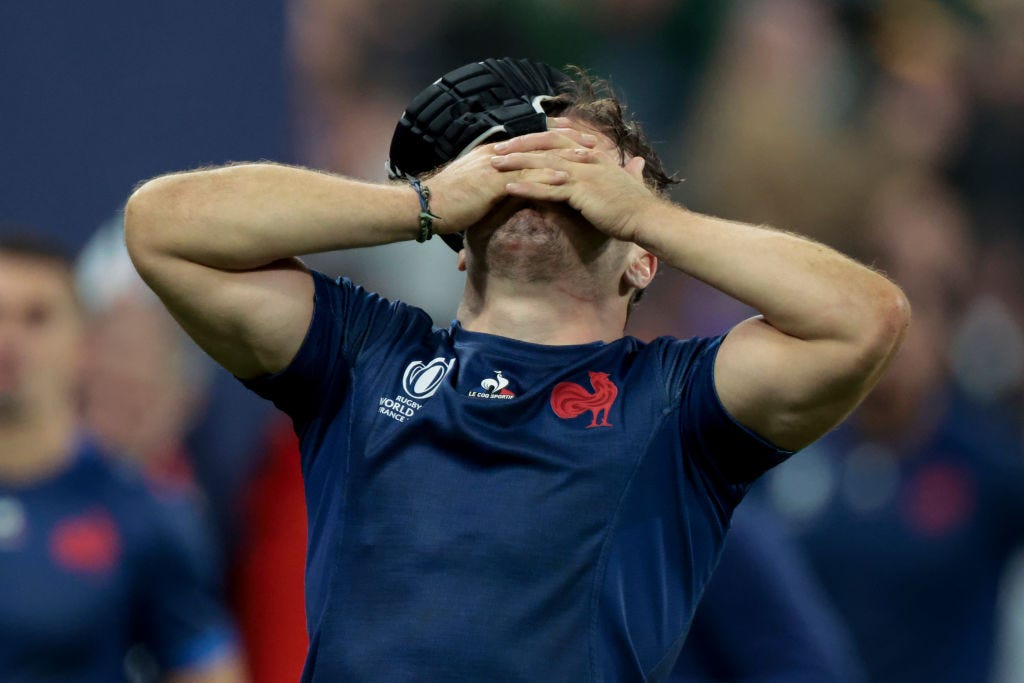A day just like yesterday, but crazier
A Rugby World Cup weekend for the ages (PLUS: Dumbfounded in Delhi)
By the fires of St Christopher, that might well be the greatest weekend of rugby this planet has ever witnessed.
Hyperbole, much?
The two quarter-finals we hoped would be epics surpassed those wildly optimistic expectations, and the two quarters we suspected might be lower on quality were still outrageously interesting1.
Keep reading with a 7-day free trial
Subscribe to The Bounce to keep reading this post and get 7 days of free access to the full post archives.




